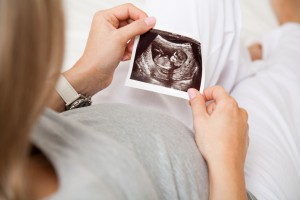Infertility Treatment
INFERTILITY CARE PATHWAYS depend on 1) WHEN infertility diagnosis made (2) age (3) your partner’s age (4) many personal preferences. When IVF fails we reassess these causes. At Susannah Makram Clinics we view infertility as a complete care pathway. That this may be supported by our individual body wellness is where we come in.
When IVF Fails
When IVF fails your decision to go ahead with the same treatment for infertility is usually put into question. This is a natural reaction to have.
In vitro fertilisation (IVF) is the most common ART technique. When IVF fails, the decision to continue with another IVF cycle, at the earliest possible time, is not one to take lightly. Assisted reproductive technology (ART) is any fertility treatment in which the egg and sperm are handled.
IVF involves stimulating and retrieving multiple mature eggs from a woman, fertilising them with a man’s sperm in a dish in a lab, and implanting the embryos in the uterus three to five days after fertilisation.
IVF Success Rates
IVF-conceived babies now account for 2% all babies born in the UK. [tweetthis]IVF-conceived babies now account for 2% all babies born in the UK[/tweetthis]
The success rate of ART is lower after age 35. This is according to new figures on infertility treatment us and outcomes. these figures are released annually by the Human Fertilisation and Embryology Authority (HFEA).
When choosing a fertility clinic carrying out IVF treatment The HFEA presents success rates for every licensed clinic.
Some women need just one or two therapies to restore fertility. It is possible that several different types of treatment may be needed before you are able to conceive.
GENETIC and CHROMOSOMAL issues causing FAILURE OF IMPLANTATION in IVF – The high rate of chromosomal abnormalities in human embryos.
- As women age, the incidence of chromosomal abnormalities in mature eggs increases significantly. Studies have shown that starting in early 30s, the rate of chromosomal abnormalities in human eggs (and therefore in human embryos) starts to increase significantly.
- The rate continues to increase with advancing female age. By mid-40s a very high percentage of human embryos are chromosomally abnormal (over 75%).
- It’s believed that this is mainly due to problems with the spindle apparatus in the egg nucleus. The spindle is involved with properly lining up and segregating the chromosomes as the egg matures at the time of ovulation.
- Older eggs have an inefficient spindle apparatus that does not line up the chromosome pairs properly. “Mistakes” are made when splitting pairs of chromosomes. This leads to eggs that don’t have the proper balance of 23 chromosomes – and will result in a chromosomally abnormal embryo if fertilised.
- It has been shown that about 1% to 2% of human sperm are chromosomally abnormal on average – as compared to about 20% to 90% of human eggs (depending on female age).
PGS – preimplantation genetic screening can be done on embryos prior to transfer to evaluate chromosomal competence.
Other “genetic causes” of implantation failure
- Implantation failure is probably caused by other genetic mutations sometimes. With a perfectly normal “karyotype” or chromosome complement.
- There are tens of thousands of genes in the human genome. A lot of places where something can go wrong.
- With time there will be genes discovered that are crucial for efficient embryo implantation. These will be both on the embryo side and on the uterine side. Perhaps they will involve the immune system as well.
INFERTILITY treatment involves commitment that is significantly financial, physical, psychological and time consuming. Male infertility treatment for general sexual problems or lack of healthy sperm at Susannah Makram Clinics use advanced male fertility diagnostics to outline effective treatment protocols for couple to choose from. Tests identify and support improvement for (normal sperm count and) poor sperm quality.
Your Naturopathic Portfolio to improve sperm quality at Susannah Makram Clinics supports ICSI if used in an IVF cycle as described.
FIND OUT MORE ABOUT FERTILITY TREATMENT ROUTES AND HOW SUPPORTING LIFESTYLE CHANGES CAN HELP COUPLES TODAY.



